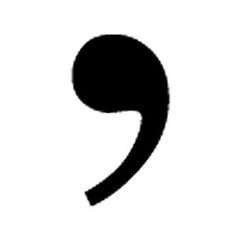 What about what not to do? Well, these are some of the common mistakes you're likely to make when first starting to craft a logline.
What about what not to do? Well, these are some of the common mistakes you're likely to make when first starting to craft a logline.
Don't use character names
It's tempting, but don't do it. The goal here is simplicity and brevity. So, rather than saying. 'John is a doctor whose wife has just left him', try 'a recently divorced doctor...' The fact he's 'John' is of no importance at this point.
The only time you could waive this golden rule is if you're writing about a real life human being.
Don't try to tell the story
It's only one sentence, it's just not possible, so don't even try.
Don't be tempted to use analogies.
Your screenplay might be Rosencrantz and Guildenstern are Dead meets Mrs. Doubtfire, but that kind of comparison is not useful for a logline. Remember, you've only got one sentence. Not a single syllable can be wasted.
Don't use hyperbole
'Greatest story ever told'...'A masterpiece'...'Heartbreaking and beautiful'. You know, the kind of thing you'd find on a movie poster. It's really not for you to decide whether or not it's the greatest story ever told, and, let's face it, chances are, it ain't. So leave it out.
Don't confuse a logline for a tagline
A tagline is also a one sentence hook for a screenplay, but it's usually for movie posters as a marketing tool.
The logline is a marketing tool too, of course, but directed at film makers not film goers. Taglines are much more succinct and usually a little more obscure; they don't give the important elements of a screenplay. For instance, one of the taglines for Beetlejuice is, "He's guaranteed to put some life in your afterlife."




 Okay, now you know what a logline is and why it needs to be good. So, let's get right to the nuts and bolts of the issue.
Okay, now you know what a logline is and why it needs to be good. So, let's get right to the nuts and bolts of the issue. What about what not to do? Well, these are some of the common mistakes you're likely to make when first starting to craft a logline.
What about what not to do? Well, these are some of the common mistakes you're likely to make when first starting to craft a logline.


 So, here are some examples of what a logline should look like. See if you can guess the movie from the one sentence summary.
So, here are some examples of what a logline should look like. See if you can guess the movie from the one sentence summary.

 How to Avoid College Debton 07/31/2014
How to Avoid College Debton 07/31/2014
 Was Charlotte Bronte Jealous of her Sister Anne?on 07/15/2014
Was Charlotte Bronte Jealous of her Sister Anne?on 07/15/2014
 Whose Side is Cancer Research UK on?on 07/06/2014
Whose Side is Cancer Research UK on?on 07/06/2014
 A Plot Summary of Electra by Sophocleson 07/05/2014
A Plot Summary of Electra by Sophocleson 07/05/2014



Comments
Thank you, Frank!
i read once that the way to sell a play is to approach a theatre company. Good luck.
I've written short plays before and am considering writing some more now. Where do you pitch them though? There are some magazines that publish excerpts, but other than that how do you go about the whole business of selling them?
I'm off to read that page now. It looks intriguing :)
Hi Mira, thanks for the comment. They're only needed for scripts, as its a way to pitch your screenplay to a producer, agent, or whoever, and entice them to read the whole thing.
That said, from the point of view of focusing on precisely what it is a novel is about, it certainly wouldn't do any harm for a novelist to have a logline in mind. It can also be a good place to start for a novel - I mention something along those lines in this article: http://wizzley.com/how-to-turn-an-ide...
Nice page. It got me thinking about a few things. Are these loglines needed for novels as well, or only for scripts?